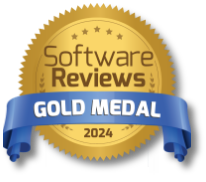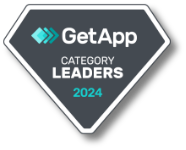Global crises, like the Covid-19 pandemic, have revealed the significant role that governance plays in securing health and lives. Care practices and measures in response to health crises are only a portion of healthcare governance.
Concerned with the processes and systems of an organization, governance is an overarching framework that underpins the efficacy and stability of an organization’s operation. Contrary to other business models, however, healthcare organizations are governed by a two-pronged system working towards a common end goal.
Read on to learn the importance of healthcare governance and how a board management platform can help healthcare organizations uphold robust governance.
What is Governance in Healthcare

Healthcare systems framework is supported by two pillars, namely corporate governance and clinical governance.
While these two concepts are seemingly interchangeable, they operate and function differently and influence care delivery in distinct ways.
Corporate governance is the structure through which the fiscal, legal and social corporate objectives are set, monitored, and achieved. Corporate leaders of a medical organization deal with fortifying business performance.
Originating from the UK National Health Services (NHS), clinical governance, on the other hand, sets in place structures, processes, and systems that enforce quality patient care. Typically, this form of governance is concerned with the pillars: clinical effectiveness and research, audit, risk management, education and training, patient and public involvement, information and IT, and staff management. Sound clinical governance enforces policies and practices relevant to the abovementioned seven pillars.
Despite being concerned about the different areas of healthcare, clinical and corporate governance are not mutually exclusive. Policies enacted by the corporate leaders cascade to clinical management as guidelines to assure client satisfaction and quality service. Ultimately, they work toward a common end goal — healthcare delivery of the utmost value.
As stewards of quality healthcare, every healthcare leader is responsible for learning the interrelationship between the two and how to link them together in order to enforce better systems. This, in turn, helps them in providing quality service to the patients and stakeholders.
Why is Governance Important in Healthcare
Most of the time, the delineation between corporate and clinical governance gets blurry, but one thing remains true — if a healthcare organization wants to be of optimal service while being profitable, then it needs robust governance. Effective healthcare governance exhibits itself in the following ways:
Providing Checks and Balances
Checks and balances are crucial in any industry, especially for healthcare organizations on whom life and health concerns rely.
Checks and balances in the healthcare sector also mean separation between corporate and clinical governance. The distinct roles and duties of every key person in healthcare’s two-pronged system must be laid out, applied, and monitored.
Simply put, good healthcare governance sets in place measures and systems that guarantee quality outcomes without the unnecessary cost to the public and one of two parties amassing funds and power.
Managing Finance and Funds

It is governance that maintains adequate cash flow and ensures financial stability for all healthcare organizations, backed by substantial evaluation planning and investment. Both clinical and corporate governance concern themselves with payment models, financial compliance requirements, and best practices in the revenue cycle.
A healthcare institution’s finance officers and managers are entrusted with developing and employing financial strategies that generate revenue and secure funding. Sound financial management ultimately translates to improved operations and quality care delivery.
Managing Risks and Business Continuity
Managing risks and curtailing the occurrence of hazards is one of healthcare’s most demanding aspects, as it extends even to the minutest of detail like color-coded signs and walkways to keep hospital patients and visitors away from hazardous areas.
Successful governance supports endeavors of not only identifying and monitoring present and potential risks, but also developing practices and systems to reduce them and their effects on patients, visitors, healthcare practitioners and staff, and organizational assets.
Without solid risk management activities delegated to key persons in the organization, healthcare governance is running the risk of patient danger, or worse, medical liability and financial loss.
Empowering Transparency and Accountability
For public and private healthcare institutions alike, transparency and accountability are the cornerstones of good governance.
Building a culture of transparency and accountability is a multi-faceted endeavor involving communication and ethics education and training, with public trust as the end goal. Being transparent and accountable to the healthcare’s patients, providers, and immediate community begins with the alignment of the organization’s vision and mission with its tactics and strategies.
Corporate governance sets out regulations and guidelines on the organization’s goals that need to be tracked, measured, and reported. Clinical governance leaders, in turn, monitor the degree and scope of implementation of such that the key medical professionals have achieved. Disclosed quality metrics encourage healthcare staff and medical practitioners to be more accountable and transparent with their care practice and procedures, thereby helping improve risk management and operations.
With governance’s multiple demands and responsibilities, healthcare boards are left with duties and tasks that require the intervention of a solution that can expedite their workflows.
Adopting a Board Management Platform for Better Healthcare Governance
Digital transformation has been at the forefront of many healthcare organizations since the onset of the pandemic. While it is demonstrated in varied ways — from using machine-learning algorithms in order to predict the length of certain medical procedures to electronically managing and storing patient records — institutions across the healthcare landscape see the benefits of streamlined processes in the institution.

Without a clear governance model to emulate, converging clinical and corporate governance is a herculean task for many healthcare institutions. No actual progress can be realized when one of the two governance systems is lagging behind.
Convene, a board management software, can simplify the complexities of corporate and clinical governance by integrating all exclusive workspaces into an all-in-one platform.
Digitalized administrative processes
Pre-pandemic, meeting administrators and secretaries used to crank up stacks and reams of papers for a single board meeting. This process proved to be inefficient, expensive, and counter-productive especially during the pandemic when many were forced to work remotely or in a hybrid setup. On top of the demands of today’s health situation, business structures are ever-evolving, and healthcare governance is likewise urged to keep pace with these advancements, thereby doing away with labor-inducing and time-consuming processes.
As a board management platform, Convene can facilitate the healthcare board’s shift to digital workflows with its compatibility across devices, and flexible integrations with various third-party solutions.
Convene facilitates healthcare providers’ initiatives to go paperless, with its easy-to-use digital features and efficient workflows. Meeting organizers can transform their hour-long meeting preparations into just a few minutes — inviting participants, creating agenda packs, publishing meetings, and circulating documents.
On the Convene app, executives and the board can track items that need their action and their respective progress. Notifications on meeting invitations, pending documents review, assigned items, action items’ deadlines, and other alerts can also be configured to be sent via email, SMS, or the Convene app.
Going digital with Convene’s aid has immensely helped Onderstepoort Biological Products (OBP Vaccines) transition to paperless and more efficient meetings.
Secure document repository
The sheer volume of documents and records monitored and stored by healthcare institutions on a daily basis requires the use of a document repository that is secure and easily accessible to relevant people on the board.
Convene’s Document Library assures C-suite executives and directors across healthcare organizations with an efficient retrieval and storage of documents with utmost security. Convene ensures that there are encryptions on documents, such as custom watermarks to prevent sharing of private data. Board administrators can also configure access controls to ensure no data breaches can happen, thereby safeguarding patients’ and providers’ confidential information.
King Hussein Cancer Foundation benefited greatly from Convene’s secure file repository.
Expedited decision-making workflow
Given the high-risk nature of matters that medical governance deals with, decision-making processes should be methodical. A platform like Convene that streamlines document management and file sharing would be the top-notch choice in fostering accountability and transparency, security, and improving decision-making in the healthcare boardroom.
Convene’s features allow healthcare boards to take on urgent matters by implementing well-informed policies and guidelines. Using Review Rooms, boards can kick off review and approval workflows where they can collaborate on proposals by annotating pages and assigning action items. Once reviewed and approved, they can easily sign off official documents for implementation with the use of Convene’s Signature Suite. Additionally, executives and directors can cast votes on certain documents without the need for meetings, using the Resolutions feature.
Convene’s Workspaces feature enables healthcare organizations to seamlessly converge their clinical and corporate governance on one platform without mixing up meetings, documents, and workflows. Clinical and corporate leaders can collaborate and share documents with order users in their affiliated workspaces within the Convene app.
All these processes can be done on just a single platform — making governance practices digital and more efficient.
Administer better healthcare governance with Convene

Systems and processes set to ensure better care and delivery service should not be compromised, especially with lives and health on the line. Automating processes relevant to decision-making can lead healthcare leaders to make timely and sound decisions for the business and the patients.
Learn more about the features of our governance software, Convene, and how it can help uphold governance in your healthcare organization.
Rose is a Proposals Writer at Convene where she has gained extensive experience crafting proposals to suit various organizations’ requirements. An avid reader and lifelong learner, she has also recently taken a liking to IT and digital marketing. She is involved in producing web content on paperless boardroom solutions across industries and sectors. Rose graduated from Ateneo de Naga University with a Bachelor’s degree in Arts and Secondary Education, with a major in English.










